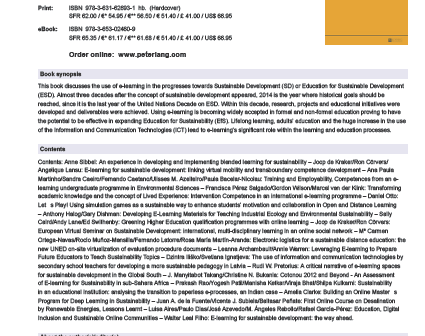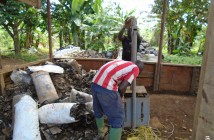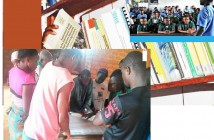It would seem that e-learning is finally taking its place in contributing to education for sustainable development in Africa. This chapter offers an assessment of e-learning for sustainability in sub-Sahara Africa, by drawing on some case studies such as the African Virtual University. The assessment will investigate to what extent the e-learning initiatives are homegrown, i.e. specifically designed to solve local problems, how e-learning is bridging the lack
of human capacity, and access to information on sustainability. Moreover, it will address the question of how inclusive e-learning for sustainability could be in Africa, especially in view of infrastructural limitations and the costs of participating in e-learning courses. The chapter concludes with some recommendations for future developments in e-learning for sustainability in Africa.
This book chapter is available in:
E-Learning and Education for Sustainability
Series:
This book discusses the use of e-learning in the progresses towards Sustainable Development (SD) or Education for Sustainable Development (ESD). Almost three decades after the concept of sustainable development appeared, 2014 is the year where historical goals should be reached, since it is the last year of the United Nations Decade on ESD. Within this decade, research, projects and educational initiatives were developed and deliverables were achieved. Using e-learning is becoming widely accepted in formal and non-formal education proving to have the potential to be effective in expanding Education for Sustainability (EfS). Lifelong learning, adults’ education and the huge increase in the use of the Information and Communication Technologies (ICT) lead to e-learning’s significant role within the learning and education processes.



